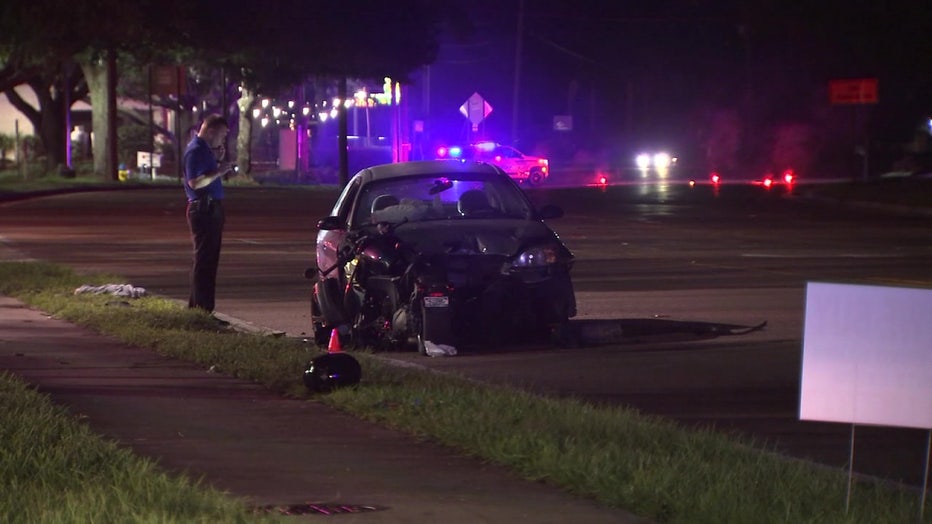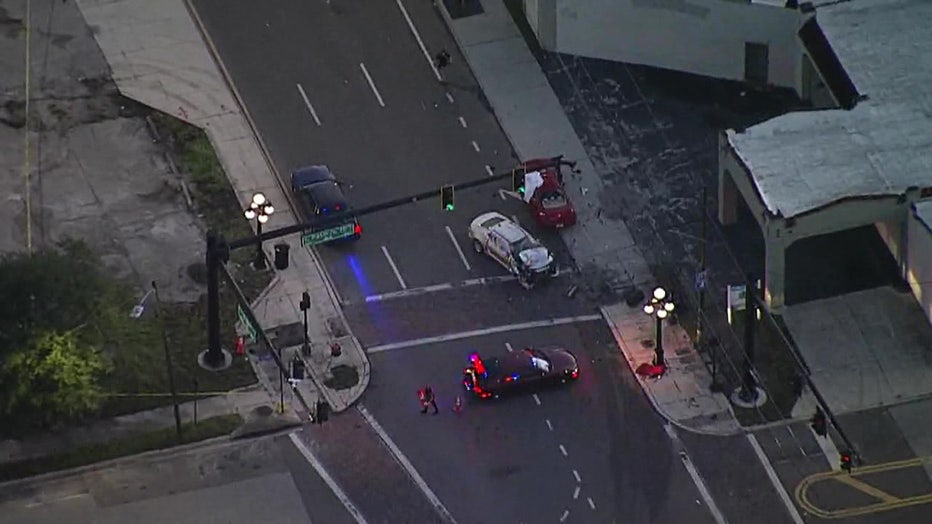'These are real people': Traffic deaths hit 20-year high in first quarter of 2022
TAMPA, Fla. - In just the first three months of the year, there were more than 9,500 traffic deaths nationwide. That's the highest first quarter in two decades. While the causes are nothing new, speed being a major factor, road safety advocates are calling for dramatic changes to get numbers down.
From highways to city streets, the roads are not always kind. In fact, roads in the U.S. have become downright deadly.
In the three years before the pandemic, traffic death numbers were falling. In 2019, The National Highway Traffic Safety Administration reported 36,355 traffic deaths. That grew to 38,824 in 2020, then, 42,915 in 2021.
MORE: More than 42,000 people were killed on US roads last year, traffic agency says
That troubling trend is continuing in 2022. In the first three months of this year, NHTSA estimates that there were 9,560 traffic deaths across the country. That's a 7% increase from last year, and the highest number for first quarter deaths since 2002.

In Florida, an estimated 998 people died in the first quarter, up 1%.
"It's very unfortunate," said Melissa Valido, Florida's State Coordinator for SADD, "especially when you take into consideration that these aren't just numbers, these are real people, real individuals on our roads that are dying from a horribly preventable tragedy."
Sadly, we saw another case Thursday in Tampa, shutting down I-75 at Bruce B. Downs. One person was killed, several others hurt.
RELATED: Southbound I-75 reopens hours after deadly crash
The government points to an increase in speeding, impaired driving and other reckless behavior that's fueling skyrocketing numbers.
"People going 20, 30, even 40 miles an hour above the posted speed limit," said Peter Kurdock, General Counsel for Advocates for Highway and Auto Safety. "One of the other factors that we're seeing that is prevalent in so many crashes is distraction."

While education campaigns help, Kurdock is pushing for more dramatic steps in all vehicles to get numbers down.
"It's like a major plane crash every other week of the year." Kurdock said. "There are things like automatic emergency braking. If someone is, unfortunately, looking at their phone, not paying attention, the vehicle will stop for that. Another technology that's really promising that's being developed is impairment detection technology that will prevent someone from operating a vehicle where they're impaired."
NHTSA Administrator Dr. Steven Cliff said with numbers moving in the wrong direction, now is the time for states to double down on traffic safety.
"Through the Bipartisan Infrastructure Law, there are more resources than ever for research, interventions and effective messaging and programs that can reverse the deadly trend and save lives," said Dr. Steven Cliff, NHTSA’s Administrator.
NHTSA said money through the Infrastructure Investment and Jobs Act will be spent on building safer roads and on speed enforcement.


